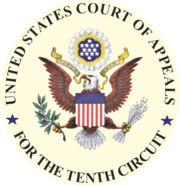
The Fourth Amendment to the United States Constitution is part of the Bill of Rights. It prohibits unreasonable searches and seizures. In addition, it sets requirements for issuing warrants: warrants must be issued by a judge or magistrate, justified by probable cause, supported by oath or affirmation, and must particularly describe the place to be searched and the persons or things to be seized.

Search and seizure is a procedure used in many civil law and common law legal systems by which police or other authorities and their agents, who, suspecting that a crime has been committed, commence a search of a person's property and confiscate any relevant evidence found in connection to the crime.

The open-fields doctrine, in the U.S. law of criminal procedure, is the legal doctrine that a "warrantless search of the area outside a property owner's curtilage" does not violate the Fourth Amendment to the United States Constitution. However, "unless there is some other legal basis for the search," such a search "must exclude the home and any adjoining land that is within an enclosure or otherwise protected from public scrutiny."
In the United States, the plain view doctrine is an exception to the Fourth Amendment's warrant requirement that allows an officer to seize evidence and contraband that are found in plain view during a lawful observation. The doctrine is also regularly used by Transportation Security Administration (TSA) officers while screening persons and property at U.S. airports.
Illinois v. Rodriguez, 497 U.S. 177 (1990), is a U.S. Supreme Court case dealing with the issue of whether a warrantless search conducted pursuant to third party consent violates the Fourth Amendment when the third party does not actually possess common authority over the premises.
Consent searches are searches made by police officers in the United States based on the voluntary consent of the individual whose person or property is being searched. The simplest and most common type of warrantless searches in the United States are searches based upon consent. No warrant, probable cause or reasonable suspicion is required to perform a search if a person, or someone else with the proper authority, consents to a search.
Inevitable discovery is a doctrine in United States criminal procedure that permits admission of evidence that was obtained through illegal means if it would "inevitably" have been obtained regardless of the illegality. It is one of several exceptions to the exclusionary rule, or the related fruit-of-the-poisonous tree doctrine, which prevent evidence collected in violation of a defendant's constitutional rights from being admitted in court.

The Fifth Amendment to the United States Constitution addresses criminal procedure and other aspects of the Constitution. It was ratified, along with nine other articles, in 1791 as part of the Bill of Rights. The Fifth Amendment applies to every level of the government, including the federal, state, and local levels, in regard to a US citizen or resident of the US. The Supreme Court furthered the protections of this amendment through the Due Process Clause of the Fourteenth Amendment.
United States v. Williams, 553 U.S. 285 (2008), was a decision by the Supreme Court of the United States that a federal statute prohibiting the "pandering" of child pornography did not violate the First Amendment to the United States Constitution, even if a person charged under the code did not in fact possess child pornography with which to trade.

Perfect 10, Inc. v. CCBill LLC, 488 F.3d 1102, is a U.S. court case between a publisher of an adult entertainment magazine and the webhosting, connectivity, and payment service companies. The plaintiff Perfect 10 asserted that defendants CCBill and CWIE violated copyright, trademark, and state law violation of right of publicity laws, unfair competition, false and misleading advertising by providing services to websites that posted images stolen from Perfect 10's magazine and website. Defendants sought to invoke statutory safe harbor exemptions from copyright infringement liability under the Digital Millennium Copyright Act, 17 U.S.C. § 512, and from liability for state law unfair competition, false advertising claims and right of publicity based on Section 230 of the Communications Decency Act, 47 U.S.C. § 230(c)(1).

United States federal probation and supervised release are imposed at sentencing. The difference between probation and supervised release is that the former is imposed as a substitute for imprisonment, or in addition to home detention, while the latter is imposed in addition to imprisonment. Probation and supervised release are both administered by the U.S. Probation and Pretrial Services System. Federal probation has existed since 1909, while supervised release has only existed since 1987, when it replaced federal parole as a means for imposing supervision following release from prison.
O'Connor v. Ortega, 480 U.S. 709 (1987), is a United States Supreme Court decision on the Fourth Amendment rights of government employees with regard to administrative searches in the workplace, during investigations by supervisors for violations of employee policy rather than by law enforcement for criminal offenses. It was brought by Magno Ortega, a doctor at a California state hospital after his supervisors found allegedly inculpatory evidence in his office while he was on administrative leave pending an investigation of alleged misconduct. Some of what they uncovered was later used to impeach a witness who testified on his behalf at the hearing where he unsuccessfully appealed his dismissal.
Mancusi v. DeForte, 392 U.S. 364 (1968), is a decision of the United States Supreme Court on privacy and the Fourth Amendment. It originated in the lower courts as United States ex rel. Frank DeForte, appellant v. Vincent R. Mancusi, Warden of Attica Prison, Attica, New York, appellee, a petition for a writ of habeas corpus by a prisoner who had exhausted all his state appeals. By a 6–3 margin the Court affirmed the United States Court of Appeals for the Second Circuit's reversal of a district court denial of the petition.
Stoner v. California, 376 U.S. 483 (1964), is a United States Supreme Court decision involving the Fourth Amendment. It was a criminal case appealed from the California Courts of Appeal after the California Supreme Court denied review. The case extended the situations under which search warrants are required as they reversed a robbery conviction made on the basis of evidence obtained in violation of the holding.

United States v. Cotterman,, is a United States court case in which the United States Court of Appeals for the Ninth Circuit held that property, such as a laptop and other electronic storage devices, presented for inspection when entering the United States at the border may not be subject to forensic examination without a reason for suspicion, a holding that weakened the border search exception of the Fourth Amendment to the United States Constitution.
Fernandez v. California, 571 U.S. 292 (2014), was a U.S. Supreme Court case that explored the limits of Georgia v. Randolph, a 2006 case that held that consent to search a dwelling is invalid in the presence of an objecting co-resident. Fernandez, however, held that when the objecting co-resident is removed for objectively reasonable purposes, the remaining resident may validly consent to search.
United States v. Watson, 423 U.S. 411 (1976), was a case decided by the Supreme Court of the United States that decided that a warrantless arrest in public and consenting to a vehicle search did not violate the Fourth Amendment.
United States v. Drayton, 536 U.S. 194 (2002), was a case in which the United States Supreme Court clarified the applicability of Fourth Amendment protections to searches and seizures that occur on buses, as well as the function of consent during searches by law enforcement. During a scheduled stop in Tallahassee, Florida, police officers boarded a Greyhound bus as part of a drug interdiction effort and interviewed passengers. After talking to two of the passengers and asking if they could "check [their] person", officers discovered the two passengers had taped several packages of cocaine to their legs. At trial, the passengers argued that officers violated their Fourth Amendment rights against unreasonable searches and seizures because the police engaged in coercive behavior and never informed them that their participation in the drug interdiction efforts was voluntary.
Kingsley v. Hendrickson, 576 U.S. 389 (2015), is a United States Supreme Court case in which the Court held in a 5–4 decision that a pretrial detainee must prove only that force used by police is excessive according to an objective standard, not that a police officer was subjectively aware that the force used was unreasonable.





